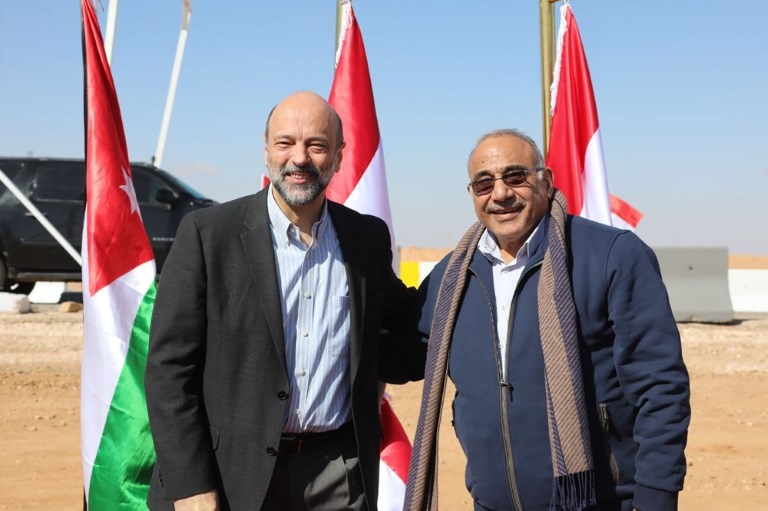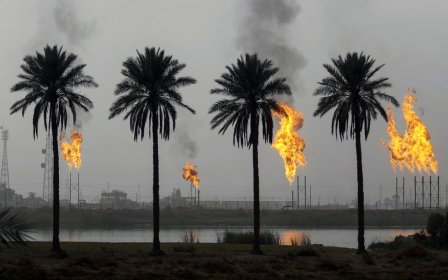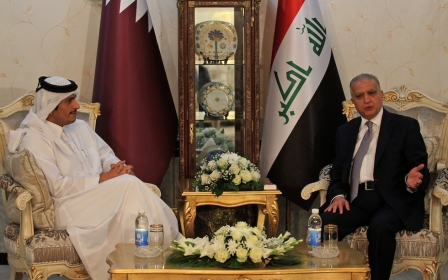Iraq, Jordan agree on deal over trade of oil and goods

Iraq and Jordan on Saturday agreed on a deal over the trade of oil and goods at a meeting between their two prime ministers on the Iraqi-Jordanian border.
Under the deal, Iraq would sell 10,000 barrels per day of oil to Jordan at a special price, transported by tanker from its Kirkuk oil fields, the Jordanian prime minister's office said in a statement, Reuters reported. It did not say what the price was or when the oil would be exported.
Iraqi goods imported via Jordan's Aqaba port on the Red Sea would receive preferential tariffs, it said.
Aqaba port at the north end of the Red Sea has long been a major transit route for Iraqi imports and exports, and Amman has long relied on Iraqi crude to fuel its economy.
New MEE newsletter: Jerusalem Dispatch
Sign up to get the latest insights and analysis on Israel-Palestine, alongside Turkey Unpacked and other MEE newsletters
Iraqi Prime Minister Adel Abdel Mahdi met with his Jordanian counterpart Omar al-Razzaz at the Treibil border crossing, referred to as al-Karameh in Jordan, which reopened in August 2017, AFP reported.
The only crossing between the two countries was shuttered in 2014 as the Islamic State (IS) group swept across Iraq, but it was reopened after Iraqi forces pushed back the militants.
Baghdad declared victory against IS in late 2017.
Amman is pushing to meet its hydrocarbon needs through a pipeline project that would connect Basra on the southern tip of Iraq with the Jordanian port of Aqaba.
The two countries said on Saturday they had begun studying its construction.
In January, Jordanian King Abdullah II made his second trip to Baghdad in more than a decade after a flurry of meetings between senior officials of both countries.
For its part, Iraq is looking for solutions to its chronic electricity shortages.
To secure an exemption from US sanctions on Iran, Baghdad has announced plans to curb its reliance on electricity supplied by Tehran and buy power from Jordan, Turkey and Kuwait.
The two premiers agreed on Saturday that Jordan would begin providing electricity to Iraq "in less than two years," according to Petra.
The two sides also agreed to lift Iraqi taxes on hundreds of Jordanian products and to establish a joint industrial zone along the border, according to a statement issued by the prime minister's office.
Abdel Mahdi said Iraq aims to decrease dependency on oil exports for state revenue. Oil exports from Opec's second-largest producer account for more than 95 percent of state revenues.
Middle East Eye delivers independent and unrivalled coverage and analysis of the Middle East, North Africa and beyond. To learn more about republishing this content and the associated fees, please fill out this form. More about MEE can be found here.




